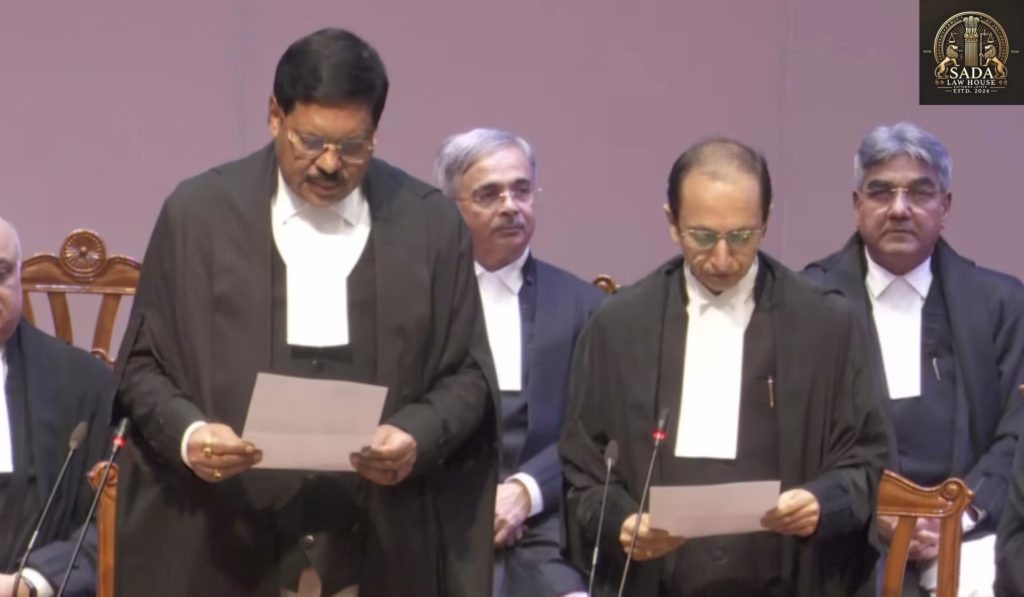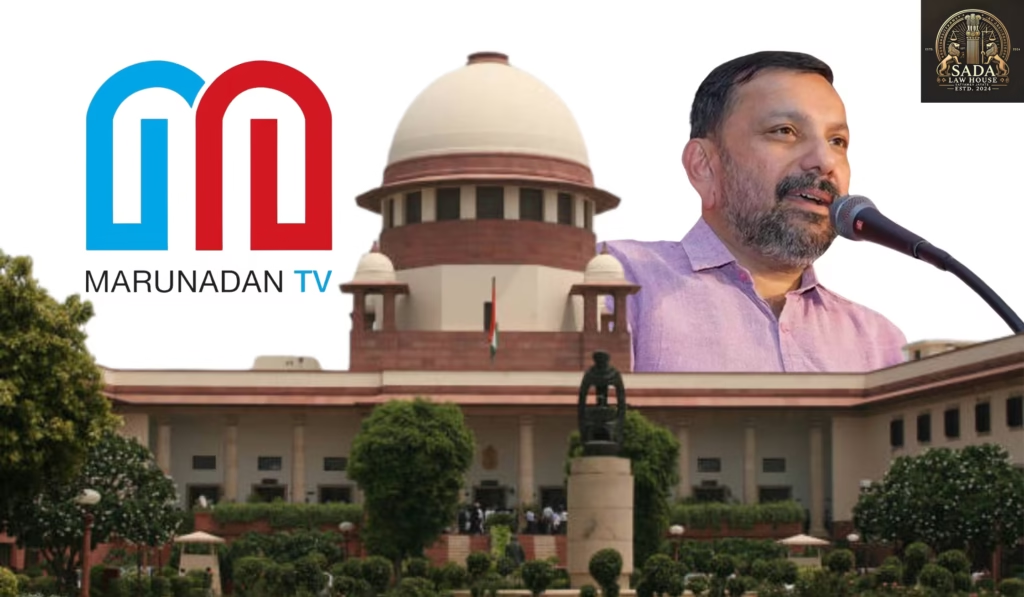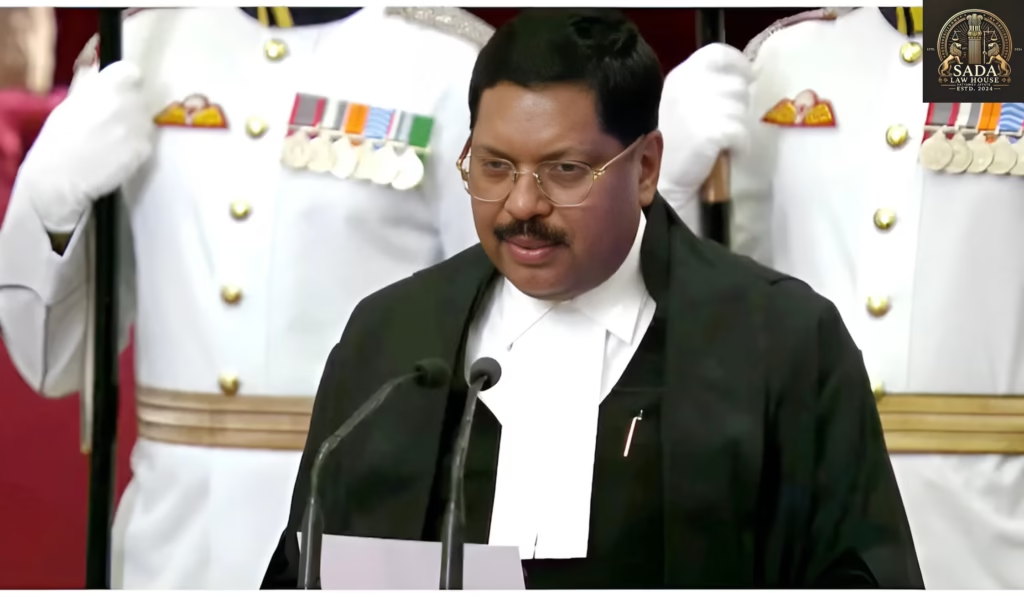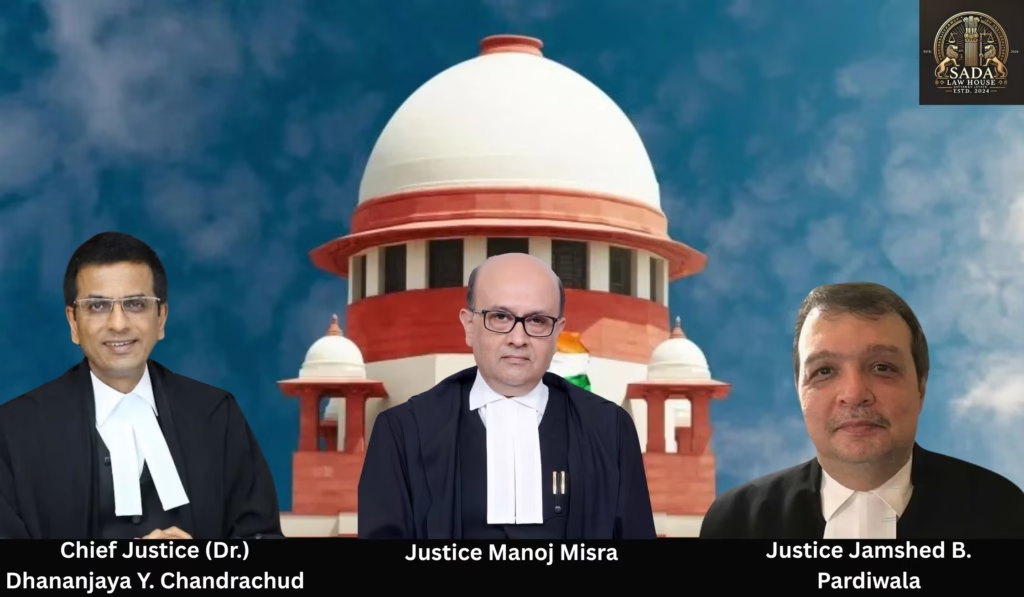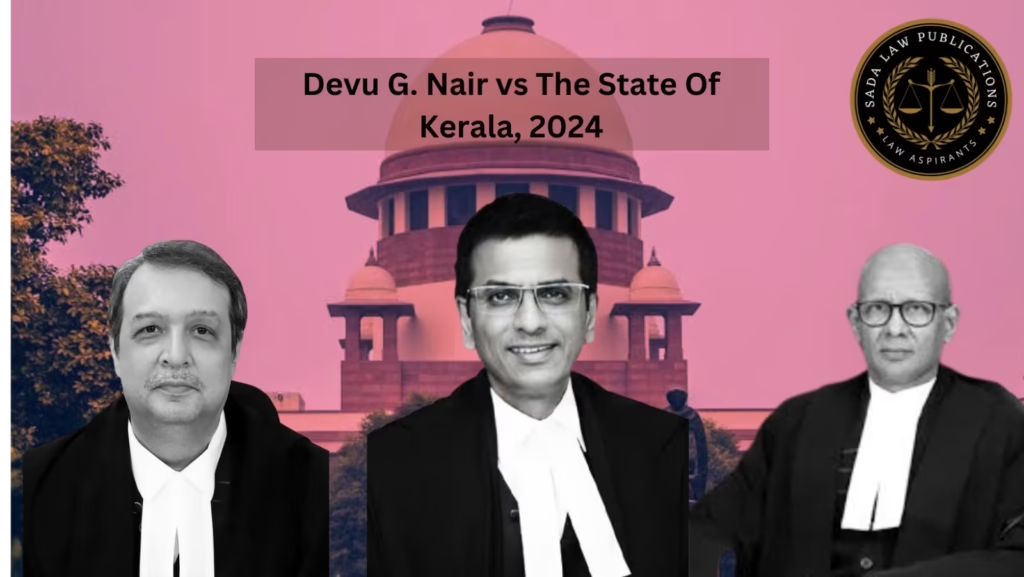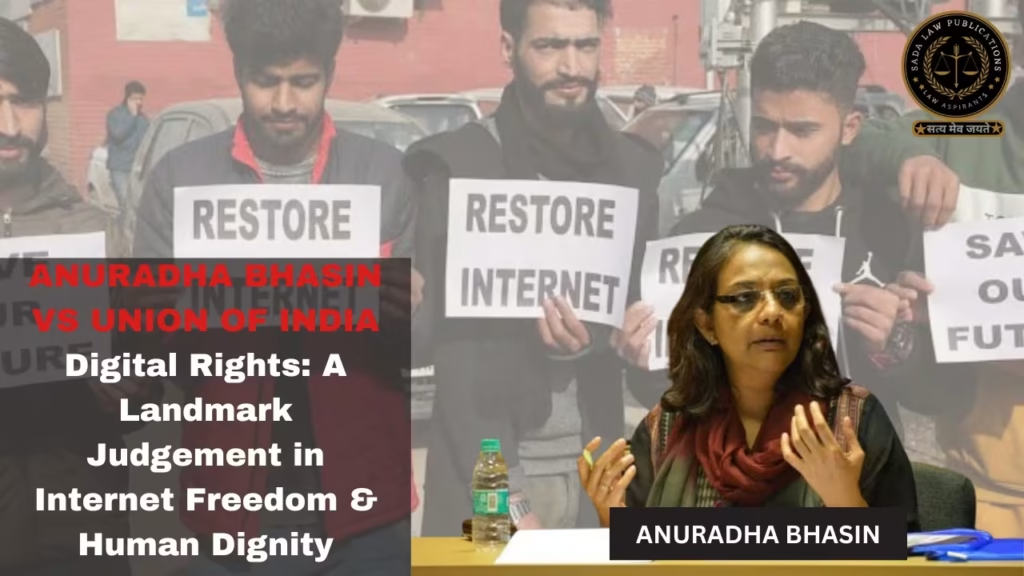Remission Shouldn’t Be Denied Solely on Reports of Presiding Judge or Police: Supreme Court Lays Down Factors for Premature Release
Trending Today Remission Shouldn’t Be Denied Solely on Reports of Presiding Judge or Police: Supreme Court Lays Down Factors for Premature Release Supreme Court Issues 12 Key Directions for Speedy Trial of Civil Cases ED Cannot Invoke PMLA Without Scheduled Offence: Supreme Court in Pavana Dibbur Case Maternity Benefits Must Extend Beyond Contract Period: Supreme Court Landmark Ruling Secunderabad Club v. Commissioner of Income Tax-V (2023): Supreme Court Rules Interest Income on Bank Deposits Taxable Devesh Sharma v. Union of India (2023): Supreme Court Rules B.Ed. Holders Ineligible for Primary Teaching Posts Salib v. State of Uttar Pradesh (2023): Supreme Court Denies Plea to Quash Criminal Intimidation FIR Pradyuman Bisht v. Union of India (2023) — Supreme Court Mandates Enhanced Court Security and Digitization Dreams Deferred: Odisha’s Young Engineers Caught in Recruitment Crossfire Byju’s in the Dock: Can India’s Ed-Tech Giant Escape the Debt Trap? Remission Shouldn’t Be Denied Solely on Reports of Presiding Judge or Police: Supreme Court Lays Down Factors for Premature Release REHA BHARGAV 08 June 2025 The Supreme Court’s landmark judgment in Rajo @ Rajwa @ Rajendra Mandal v. State of Bihar (2023) sets crucial guidelines for remission of life convicts, emphasizing a holistic assessment beyond judicial opinions. Learn how this decision shapes premature release and criminal justice reforms. Introduction The case of Rajo @ Rajwa @ Rajendra Mandal v. State of Bihar addresses the important legal question of premature release or remission of a life imprisonment convict. Convicted in 2001 for the murder of three individuals including two police officers, the petitioner’s applications for early release were rejected primarily based on adverse opinions from trial judges. The Supreme Court of India in its August 2023 judgment emphasized the need for a comprehensive and reformative approach towards remission, focusing on rehabilitation and conduct rather than just the original crime. Facts of the Case Rajo (also known as Rajwa or Rajendra Mandal) was convicted and sentenced to life imprisonment in 2001 for the brutal killing of three persons during a village festival in Bihar, including two police officers. Over two decades, he filed multiple applications for remission, supported by positive conduct reports from jail authorities and probation officers. However, these were repeatedly denied by the Remission Board citing unfavorable opinions from the original presiding judges. The petitioner challenged this denial, arguing that the remission process should prioritize reformation and current behavior rather than being solely based on past judicial views. Issue of the Case The central legal issue was: Should the Remission Board reject premature release applications based primarily on adverse judicial opinions from the time of conviction, or should it adopt a holistic evaluation considering the convict’s conduct, rehabilitation prospects, health, age, and other relevant factors? Petitioner’s Arguments The petitioner presented several key points: Completion of Minimum Sentence: Having served over 24 years, Rajo surpassed the statutory minimum 14 years required under Section 433A of the Code of Criminal Procedure, 1973 for life convicts. Positive Behavior in Custody: Reports from the Probation Officer and Jail Superintendent highlighted exemplary conduct and genuine efforts towards rehabilitation. Excessive Reliance on Judicial Opinions: The adverse remarks of the presiding judges, formed over 20 years ago, were outdated and did not reflect current reformative progress. Holistic Assessment Required: The remission process should include all relevant factors such as age, health, family circumstances, and risk of recidivism. Reformatory Aim of Imprisonment: The fundamental purpose of incarceration is reformation, and denying remission purely on judicial opinions contradicts this principle. Respondent’s Arguments The State of Bihar and other respondents countered with: Seriousness of Crime: The gravity of the premeditated murders, especially of police officers, warranted denial of remission. Weight to Judicial Opinions: The trial court and Sessions Court judges had first-hand knowledge and their opinions deserved significant weight. Discretion of Remission Board: The board exercised its powers judiciously after reviewing all materials, including conduct reports. Public Interest & Deterrence: Premature release might undermine public confidence and reduce the deterrent effect of severe sentences. Compliance with Procedures: The remission process was conducted as per statutory guidelines and the petitioner’s applications were duly considered. Judgment On 25 August 2023, the Supreme Court bench of Justice S. Ravindra Bhat and Justice Prashant Kumar Mishra ruled in favor of the petitioner, directing the Remission Board to reconsider the application with the following key observations: Holistic and Balanced Approach: Remission decisions should weigh not only the original offense but also present conduct, age, health, and reform prospects. Avoid Mechanical Rejection: Overreliance on adverse judicial opinions formed decades ago undermines the rehabilitative purpose of remission. Reformation as Ultimate Goal: Even life convicts demonstrating genuine behavioral change deserve a chance for premature release. The Court ordered a fresh, reasoned consideration of the petitioner’s remission request, preferably within three months, emphasizing fairness and rehabilitation in criminal justice. Conclusion The Supreme Court’s landmark decision in Rajo @ Rajwa @ Rajendra Mandal v. State of Bihar reinforces a compassionate and reform-oriented approach to remission, particularly for life convicts. While recognizing the seriousness of heinous crimes, the judgment insists that decisions on premature release must consider current behavior, rehabilitation, and social reintegration potential rather than rely solely on outdated judicial opinions. This ruling marks an important step towards balancing punishment with fairness and humanity in India’s criminal justice system. Leave a Reply Cancel Reply Logged in as Sadalaw. Edit your profile. Log out? Required fields are marked * Message* Case Laws Remission Shouldn’t Be Denied Solely on Reports of Presiding Judge or Police: Supreme Court Lays Down Factors for Premature Release Remission Shouldn’t Be Denied Solely on Reports of Presiding Judge or Police: Supreme Court Lays Down Factors for Premature Release Sadalaw • June 8, 2025 • Case law • No Comments Supreme Court Issues 12 Key Directions for Speedy Trial of Civil Cases Supreme Court Issues 12 Key Directions for Speedy Trial of Civil Cases Sadalaw • June 8, 2025 • Case law • No Comments ED Cannot Invoke PMLA Without Scheduled Offence: Supreme Court in Pavana Dibbur Case ED Cannot Invoke PMLA


